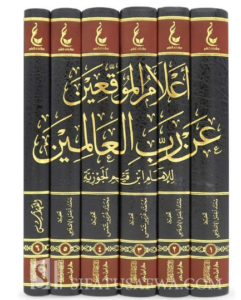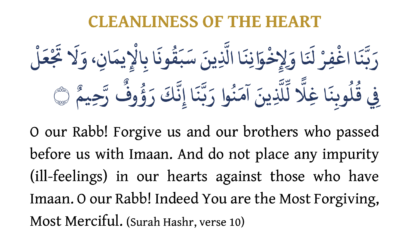Letter of Imam Malik to Imam al Layth ibn Sa’d -an amazing historical insight into the Islamic etiquette of disagreement.
Of the most famous intellectual rivalries in Islamic history is the rivalry of Imam Mālik ibn Anas and Imam al-Layth ibn Sa’d. Both were tremendous legal scholars, both founded a madhab, and both were intellectual powerhouses. More importantly, both were men of impeccable adab and held each other in the utmost respect. Ibn al Qayyim al-Jawziyyah records some correspondence between these two great imams in his book ‘Ilam al-Muwaqqi’in– إعلام الموقعين عن رب العالمين للإمام ابن قيم الجوزية
Their letters are an amazing historical insight into the Islamic etiquette of disagreement. The following is a letter from Imam Mālik to Imam al-Layth:
Letter of Imam Malik to Imam al Layth ibn Sa’d- Intellectual disagreement
In the name of Allah, the Beneficent, the Merciful.
From Mālik b. Anas to al-Layth b. Sa`d.
I salute you with peace and praise Allah besides whom there is no God.
May Allah keep us both upon His obedience in everything that we do openly and in secret. May He save us both from doing anything that displeases Him. At the time that I write this, I can say that I, my children, and my family are all doing well, may Allah be praised. I have read your letter conveying that you are well and it pleases me to hear how Allah has been blessing you. I ask Allah to keep us both prosperous and bless us to be thankful to Him always.
I understood from what you have said about the books you sent me that you wanted me to correct them for you and send them back to you. I have done this, and I have made the changes in the manuscripts so that they are now correct, as you would like them. I put my seal on the final page of each corrected manuscript. The words on the seal are: “Allah is sufficient for me and He is the best disposer of affairs.”
It is always my pleasure to help you and serve you in anything you need, which is what you deserve. I undertook this effort at a time when I normally do not read, so that that the person who delivered to me the manuscripts could get them back to you. I have spent the effort on it that is your right and due.
My study of the manuscripts you sent me has encouraged me to give you some advice on my own initiative, and I hope that this advice will be well received. I had only held back from this previously because you had not hitherto discussed these things with me, not because I did not have a good opinion of you.
It has come to my attention that you are giving verdicts contrary to the practice of the community and country where we live [i.e. Madinah]. You are a leading scholar, held in high esteem by the people of your country. They depend on you and trust in what you say. Because of this, you must fear for yourself and tread cautiously.
Allah says in His Book: “And the first to lead the way, of the emigrants from Mecca and the people of Madinah, and those who followed them in goodness, Allah is well pleased with them and they are well pleased with Him, and He has made ready for them gardens beneath which rivers flow, wherein they will abide forever. That is the supreme triumph.” [Sūrah al-Tawbah: 100]
He also says: “Those who hear advice and follow the best thereof, such are those whom Allah guides, and such are people of understanding.” [Sūrah al-Zumar: 18]
The generality of people are but followers of the people of Madinah. The emigration was to this city. In it the Qur’an was revealed, and what is lawful and prohibited were declared as such. Allah’s Messenger was in their midst, and they witnessed the revelation come down to him. He commanded them and they obeyed. He established practices for them and they followed him. This was the case until Allah took up his soul and chose for him to be in His presence.
Those who succeeded him were the most observant in following him of all Muslims who have ever been established in authority. Whenever something came up that they knew about, they put that knowledge into practice. Whatever they did not know about they would ask about it and then rely on their understanding and their proximity to the days of the Prophet to adopt whatever they found to be the strongest opinion on the matter. If someone opposed them or showed them that that another opinion on the matter was stronger or more likely, that opinion would be abandoned and the other would be adopted.
The Successors who came after them had the same approach and followed the same Sunnahs. So if something is openly and generally practiced in Madinah, I do not see it as an option for anyone to do otherwise. This is because the people of Madinah have in their possession the inherited tradition that no one else can claim or falsely attribute to themselves.
If the people in all the countries were to start claiming: “This is the practice in our land” or “This is what people amongst us have been doing”, their claims would have no sound basis. It would not mean what it does when the people of Madinah say the same thing.
Consider for yourself what I have written. Know that I write to you wishing only to advise you, for Allah’s sake, in concern for you and your welfare. Read this letter in this spirit, for if you do so, you will see that I have been as sincere to you as I could possibly be.
May Allah grant us both success in obeying Him and His Messenger in all matters and under all circumstances.
May Allah’s peace and mercy be upon you.
Written on Sunday, the 9th of Safar. ( Reblogged )
Also read- Ilaika, Imam Ash-Shafi’s poem on his deathbed
More can be read in the book –Ilam al-Muwaqqi’in
Discover more from Islam Hashtag
Subscribe to get the latest posts sent to your email.






